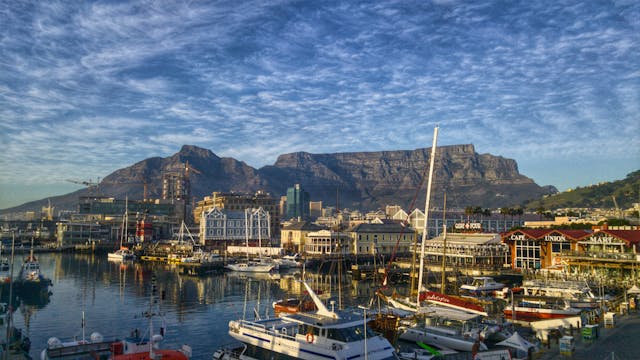In 2024, the spotlight shines on cities like Cape Town, Grand Baie, and Marrakech, showcasing not only opulent living spaces but also the dynamic economic growth driving the continent’s real estate market
Africa is also swiftly becoming a beacon for luxury real estate investors worldwide, with its cities climbing the ranks among the most coveted destinations for high-net-worth individuals (HNWIs).
Africa’s Most Expensive Cities 2024
Cape Town: The Jewel in Africa’s Crown
- Current Valuation: Prime residential spaces are pegged at USD 5,600 per m2.
- Highlights: Known for its breathtaking scenery and robust infrastructure, Cape Town remains a top destination for luxury property seekers.
Grand Baie, Mauritius: Island Luxury at its Finest
- Price Range: Prime apartments range from USD 5,000 per m2.
- Unique Selling Points: Offers serene beachfront views and a stable investment environment, making it highly desirable for international buyers.
Morocco’s Trio of Opulence
- Marrakech: Offers a mystical charm with properties valued at USD 2,200 per m2.
- Tangier and Casablanca: These cities combine modernity and culture, with prices at USD 1,600 and USD 1,400 per m2, respectively.
South Africa’s Diverse Offerings
- Plettenberg Bay and Hermanus: Known for their stunning coastlines and luxurious amenities, priced at USD 2,400 and USD 2,300 per m2, respectively.
- Umhlanga and Sandton: These cities are hubs for business and leisure, with prices around USD 2,000 and USD 1,800 per m2.
Cairo, Egypt: A Blend of History and Modernity
- Market Rate: Prime real estate goes for about USD 1,500 per m2.
- Appeal: As one of Africa’s largest cities, Cairo presents growth in luxury real estate amid a backdrop of rich history and expanding urban landscapes.
The Rising Tide of Africa’s Real Estate Market
Berry Everitt, CEO of Chas Everitt International property group, provides expert insights into the burgeoning luxury real estate sector across the continent.
“Africa, with a burgeoning young population and rapid urbanization, contrasts sharply with other major economic blocs. This demographic advantage is already catalyzing substantial demand for upscale properties.”
Economic and Demographic Catalysts
- Youthful Demographics: Africa’s predominantly young population fuels a growing demand for innovative housing solutions.
- Urbanization: The fast-paced urbanization is creating sprawling urban centers that demand high-quality residential and commercial real estate.
Sectoral Growth Driving Real Estate
- Communications and Financial Services: These sectors are particularly lucrative for HNWIs, fostering a robust demand for luxury office spaces and residential properties.
- Infrastructure and Manufacturing: Investments in these areas are creating more opportunities for real estate development.
- Agriculture and Logistics: These foundational sectors support both residential and commercial real estate growth due to their significance in Africa’s economy.
Looking Forward: The Future of Luxury Real Estate in Africa
As Africa continues to grow economically, the luxury real estate market is expected to expand correspondingly. Cities like Cape Town and Marrakech are not just hotspots for property investment but also symbols of Africa’s potential to rival global markets in luxury living and investment opportunities.
Future Prospects
- Investment Opportunities: Africa’s luxury real estate market is ripe for investors looking to capitalize on the continent’s growth.
- Development Potential: Urban centers across Africa offer vast potential for new development projects tailored to the luxury market.
Conclusion
For investors and homebuyers alike, the continent offers a plethora of opportunities that combine luxury with growth, making it a prime region for those looking to invest in a vibrant and evolving market.
